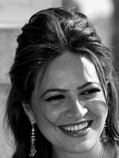| |
      |
|
Gender Rights and Freedoms
in Turkey and the Arab World: Spring or Winter?
|
 |
|
|
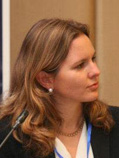 Diba Nigâr Göksel |
|
This issue of Turkish Policy Quarterly (TPQ) looks at how dynamics unleashed by the Arab Spring are affecting women's rights and liberties across the Arab world, and how Turkey relates to these complex trends. Authors seek to illuminate questions such as:
"Is Turkey a model when it comes to women's rights and empowerment? Or, is Turkey increasingly importing ideas and practices vis-à-vis women from its conservative Islamic neighbors?"
"Might there need to be another "Spring" – a form of revolution in gender relations?"
Another human rights debate taken on by authors of this issue of TPQ is that of LGBT citizens. The recognition and rights of the LGBT community is seen as a prism through which the depth and breadth of democracy can be measured – particularly as a litmus test of whether conservatism necessarily casts a shadow on individual rights and freedoms.

|
|
|
 |
|
|
 Sedef Küçük |
|
"Initial hopes that the Arab Spring would bring positive development regarding women's rights have been replaced with rightful concerns due to the elections of Islamic parties to power."
"The fall of several authoritarian regimes does not mean that democracy will follow immediately. In the meantime, women remain uneasy."
"The mentality that traps women within the wife-mother-housewife triangle and limits women's role in society to her family, has been dominant in more than a decade of AKP rule in Turkey since 2002."

|
|
|
 |
|
|
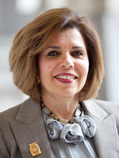 Moushira Khattab |
|
"The Egyptian Islamists have been criticized for talking solely about Shariah and Hodoud, praying for the ruler in mosques, giving him an almighty status, and criminalizing those who oppose him – exactly like the Ottoman Caliphate."
"The lack of a charismatic, unifying leader or a common national aspiration, such as Turkey's EU ambitions, has left Egypt in unprecedented polarization."
"The cause of women has been an issue since the outset of the revolutions and the 'Spring' has unfortunately turned into an autumn for women, or a spring without flowers."

|
|
|
 |
|
|
 Arwa Damon |
|
"The phenomenon of the 'radicalization of the revolution' has ingrained itself. Extremist groups like the Nusra Front, which the U.S. recently designated a terrorist organization, are at the forefront of the rebel fighting force and seeing their capabilities, influence and ranks grow by the day."
"Women remain grossly underrepresented when it comes to the local opposition councils inside Syria and the opposition bodies that exist outside of the country."
"There is a growing sense of awareness among female activists about the need to ensure the empowerment of women, now more than perhaps ever before."

|
|
|
 |
|
|
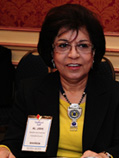 Bahiya Jawad Aljishi |
|
"While rights can be granted by a political decision, they can only be permanently established by struggle, self-determination, and a sound faith in the capabilities of women."
"Bahraini women played a monumental role in managing the election campaigns of the political parties' male candidates despite the fact that the parties' candidate lists did not include any women."

|
|
|
 |
|
|
 Selma Acuner |
|
"The '4+4+4 education system' introduced in 2012 can have some unwanted and adverse results regarding the school attendance rates of girls in formal education, somewhat 'relaxing' the eight-year compulsory education."
"Women are called upon to have at least three, and sometimes four or five children to promote larger families, which, despite the resistance from women's organizations, appears to be a new approach that the government wishes to pursue in the coming years."

|
|
|
 |
|
|
 Haleh Esfandiari |
|
"Although some leaders of the Arab Spring claimed to look to Turkey as a model, they were silent when asked whether they endorsed a separation of mosque and state."
"33 years after the revolution, Iranian women still have not regained their pre-revolutionary rights."

|
|
|
 |
|
|
 Umut Azak |
|
"The headscarf ban is still the most important symbol of the assumed oppression of Islam in the eyes of Islamic groups and AKP leaders."
"The critique of patriarchal social norms from within Islamic groups by women activists and writers is crucial for problematizing gender relations which restrict women's capacities in both Islamic and secular environments."

|
|
|
 |
|
|
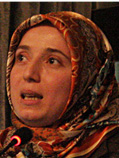
Fatma Benli |
|
"Thirteen years of bickering over whether headscarved women should be allowed higher education not only damaged them and their families, but also exhausted Turkey of time and energy."
"Women already have difficulties accessing work life; hence, the additional exclusion of covered women further diminishes female participation in economic, social, and political life."

|
|
|
 |
|
|
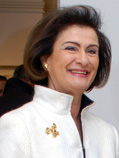 Haifa Fahoum Al Kaylani |
|
"From the very beginning of the uprisings, it became especially clear that stereotypes of Arab women were no longer applicable."
"Women who took significant risks to fight for, and shape a new Arab future are now being told that, 'now is not the time for women's rights.'"

|
|
|
 |
|
|
 Mehmet Sinan Birdal |
|
"LGBT issues significantly challenge the AKP's conservative-liberal synthesis, revealing the fault-line between the liberal and conservative narratives."
"The prevailing public discourses on the LGBTs exhibit all three kinds of misrecognition, even to the extent that the conservative democratic identity is actually constructed on the basis of a homophobic culture."

|
|
|
 |
|
|
 Volkan Yılmaz |
|
"The AKP's negative attitude towards LGBT equality were evidenced as the government refused to make any references to sexual orientation and gender identity in newly adopted legislations in 2012."
"CHP's supportive stance toward LGBT equality prevented the marginalization of the demands of LGBT rights movement during the new constitution making process."

|
|
|
 |
|
|
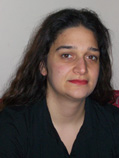 Sedef Çakmak |
|
"The human rights of LGBT individuals have been especially violated under the banner of 'safeguarding public morality'."
"When the transgender individuals become employed, almost without exception, they experience workplace harassment and mobbing, ultimately forcing them to quit."

|
|
|
 |
|
|
 Louis A. Fishman |
|
"In Turkey, local NGOs and activists have played the greatest role in changing how LGBT issues are perceived in the public sphere, which continues to be their greatest challenge."
"While human rights organizations do not focus solely on Muslim countries and the Middle East, the plight of LGBT communities in these regions have undoubtedly received special emphasis, especially following 11 September 2001."

|
|
|
 |
|
|
 Pelin Gönül Şahin |
|
"While introducing Islamist identity to Tunisian politics, Ennahda leaders have made every effort to convince the Tunisian liberals and Western authorities that they are committed to the protection of civil rights and freedoms."

|
|
|
 |
|
|
 Tuğba Bozçağa
|
|
"Along with all the gendered elements among social policies, it is appropriate to label the Turkish welfare state as gender-biased."

|
|
|
 |
|
|
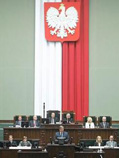 Malgorzata Druciarek
&
Aleksandra Nizynska |
|
"The lesson from the Polish experience is that gender quotas have to be accompanied with many additional mechanisms that will make them practically effective."

|
|
|
|
This Issue's Sponsors
|
| |
  |
|
Address: Kadir Has Üniversitesi Cibali Kampüsü Sosyal Sorumluluk Binası ( Beyaz Ev )
Küçük Mustafa Paşa Mah. Seferikoz Sok. No:14 Kat.1 Fatih- İstanbul
Phone: +90 212 621 4442 - +90 212 621 9258 Fax: +90 212 531 8718 info@turkishpolicy.com
|
|



























